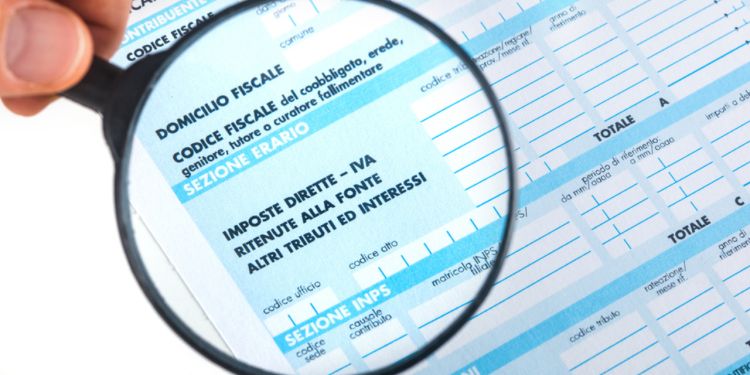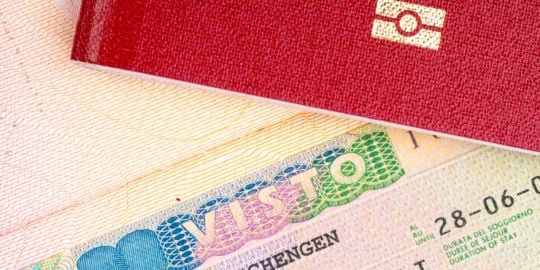Corporate tax in Italy

If you wish to set up a business in Italy, you should also be prepared to pay corporate tax. Any company operating legally and legitimately in Italy is subject to the country's taxation system. The authority responsible for Italian tax is the Agenzia delle Entrate (ADE).
In Italy, taxes can be declared online, at the Post Office, in banks, or at tax service centres like CAF centres. Note that procedures may vary according to the type of business that you wish to set up.
Good to know:
Italy Regional Production Tax (IRAP), Corporate Income Tax (IREP), and Individual Income Tax (IRPEG) have to be paid separately.
If you hire employees, you will have to deduct income tax from their monthly gross salary. The sum has to be paid to the Treasury.
Capital companies
Capital companies have to pay two different profit taxes, the corporate income tax (IRES) on their worldwide income, and regional tax (IRAP), on any added value produced by their business activities in Italy. The Imposta sul reddito delle società (IRES) is deducted at a rate of 27.5% on profits whilst the Imposta sulle attività produttive (IRAP) is applicable on value-added products. The IRAP is generally based on the annual product value, so it varies regionally but it is generally deducted at a rate of 4-4.5%.
Companies are required to file an annual tax return ' the UNICO Società di Capitalization ' to declare Value Added Tax (VAT), IRAP, IRPEG, or IRES. It is advisable to seek professional assistance from tax officers who can help you to complete the form and forward on to the relevant authorities so that you don't omit any information or make a mistake, as this could considerably lengthen the deadlines.
Important:
The Italian tax year for companies runs from 1 January to 31 December. If a company's accounting year is different from the tax year, you must base the tax return period for that year. Payments must be made in instalments twice a year, with the first payment of approximately 40% and the second of approximately 60%. The first instalment must be paid by 16 June, and the second instalment must be paid by 30 November.
Partnerships
Partnerships are required to submit the UNICO società di persone tax return. Each partner has to file in the IRPEG, IRES, and IRPEF according to their number of shares and benefits. Otherwise, they will have to file in the Imposta sulle attività produttive regionale (IRAP).
Sole proprietorship (Ditta individuale)
Sole proprietorship is subject to IRPEG, which is an individual income tax, known as the Imposta sul reddito delle persone fisiche. They must pay the IRAP. Note that IRPEG is deducted at a progressive rate, varying between 23% and 43%. It applies when the benefits exceed 70,000 euros.
Smaller companies
Smaller companies in Italy are required to file in the UNICO persone fisiche every year.
VAT in Italy
Value-added tax (VAT), known as the Imposta sul Valore aggiunto (IVA) is deducted at a rate of 22% as at 1st October 2013. But rates vary according to the region by 0.4 to 0.7%.
Hiring, employees protection and contributions in Italy
It is advisable to hire a specialised firm (Consulente del Lavoro) to help prepare and finalise all social contribution statements, tax returns, and payrolls, as bureaucracy in Italy is notoriously complicated.
You will need to register your employees with the Istituto Nazionale per l'Assicurazione contro gli Infortuni sul Lavoro (INAIL) to protect against risks of accidents and occupational diseases. These rates usually vary between 0.3% and 13%, according to the company type. Contributions are made by the employer based on the workforce's full salary.
Companies also have to register their employees with the Istituto Nazionale della Previdenza Sociale (INPS). This institution offers benefits to employees in case of sickness, maternity, invalidity, old age, death, and unemployment. Contributions are made by the employer. The INPS also supports independent workers in case of unemployment, disability, maternity, old age, death, disease, etc.
Employers must also make contributions for disability, old age, and survivors (IVS) pensions. The overall contribution is divided between the employee and the employer. The maximum payment is around â¬99,000 euros per annum.
Useful links:
Europa - Request a VAT number
Agenzia delle Entrate
Europa - Rights to social security in Italy
INPS
National Insurance Institute









